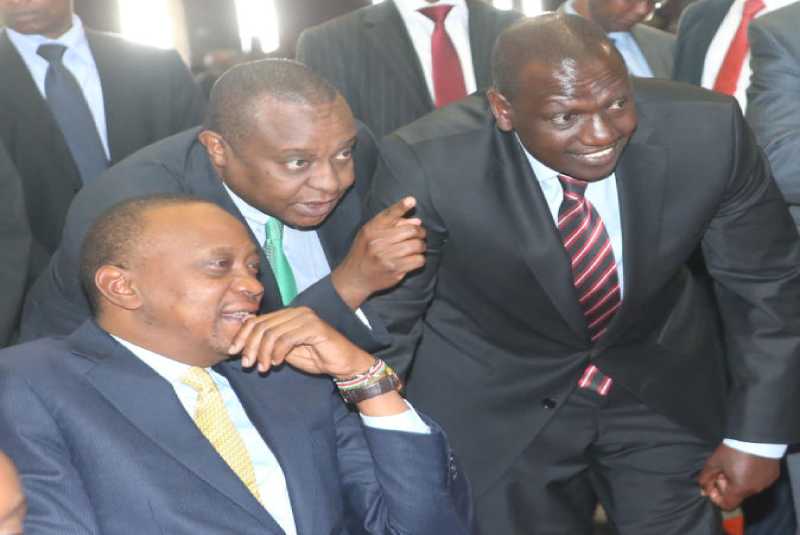×
The Standard e-Paper
Fearless, Trusted News

President Uhuru Kenyatta with Deputy President William Ruto and Cabinet Secretary for Finance Henry Rotich consults during the Launch of the Electronic Procurement and payment System at KICC. [File, Standard]
I share deeply in Kenyans’ pain at the pump following the introduction of a 16 per cent value-added tax (VAT) on petroleum products. How I wish this anger could rise to a crescendo. But our anger must be well directed. The culprit is the Government - people we elected and entrusted with resources to keep us happy.